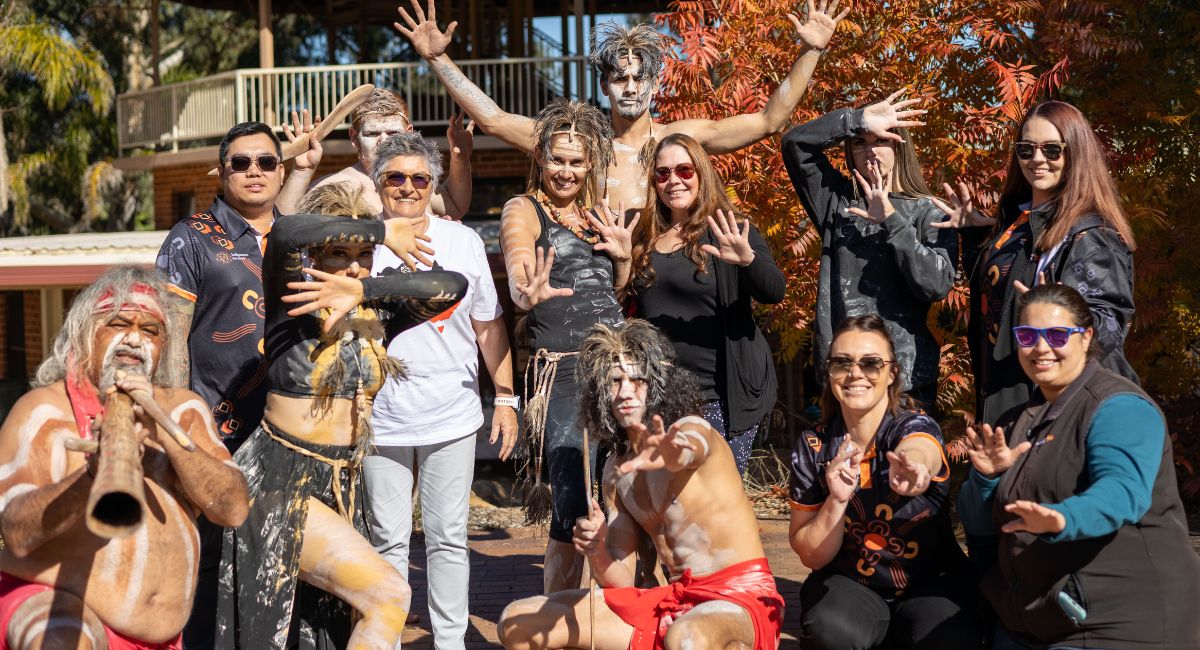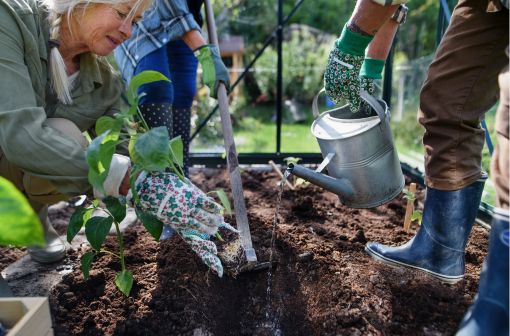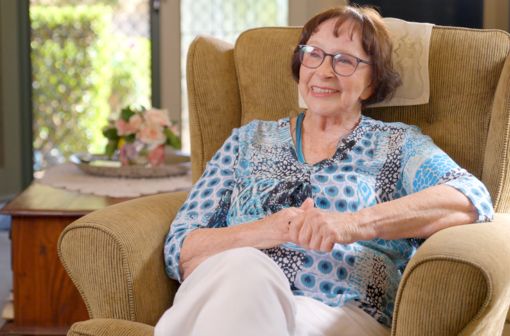“Ignorance is often the greatest threat to progress. As a company, we’re doing things to make sure people have the opportunity to access training, gain perspective and ultimately a deeper understanding of Aboriginal and Torres Strait Islander peoples.”—Matthew Ricker, CEO, Australian Unity Bank
Key points
- As a modern mutual and a wellbeing company, Australian Unity is focused on creating a culturally safe and inclusive workplace for Aboriginal and Torres Strait Islander people to thrive.
- Australian Unity is committed to championing reconciliation through initiatives like the Stretch Reconciliation Action Plan (RAP) and the Aboriginal and Torres Strait Islander Employee Reference Group.
- By helping to create a more cohesive and harmonious society, reconciliation in the workplace has benefits that extend far beyond the organisation.
There’s no doubt that Australia’s colonial past has brought about immense challenges for Aboriginal and Torres Strait Islander peoples.
“Aboriginal and Torres Strait Islander peoples have the oldest continuous culture in the world, spanning more than 65,000 years,” says Matthew Ricker, CEO of Australian Unity Bank. “But the reality is our First Nations peoples are one of the least thriving groups we have.”
To help support Aboriginal and Torres Strait Islander peoples, Australian Unity is embracing initiatives like the Stretch Reconciliation Action Plan (RAP).
Released in 2022, the Stretch RAP covers three key focus areas: embedding and improving cultural learning; creating meaningful careers for Aboriginal and Torres Strait Islander peoples; and supporting Aboriginal and Torres Strait Islander businesses.
It is a commitment to building strong, respectful relationships with Aboriginal and Torres Strait Islander people, communities and businesses. It also maps how we aim to empower our employees to actively promote reconciliation and support the wellbeing of Aboriginal and Torres Strait Islander peoples in the workplace.
“Australian Unity’s Stretch RAP embeds reconciliation activities into our business—with the overall goal of making them business-as-usual activities—to become a part of the company’s DNA,” explains Ange Donovan, Australian Unity's Reconciliation Practice Lead.

Fostering champions of reconciliation
Reconciliation—which fosters stronger relationships and connections between Aboriginal and Torres Strait Islander peoples and non-Indigenous communities—is a principle that Australian Unity is deeply committed to.
“One of Australian Unity’s visions is to empower our people to become lifelong champions of reconciliation,” says Ange. “This is critical in ensuring that we create a culturally capable and safe environment for our Aboriginal and Torres Strait Islander employees.”
From accessing Deep Listening Leave (paid leave for employees to recognise, engage and attend ceremonies, events and festivals) to taking part in ongoing cultural learning opportunities, all Australian Unity employees are invited to join the journey of reconciliation. The outcome? A stronger, more unified and engaged workforce.
“The RAP contributes to strengthening relationships between Aboriginal and Torres Strait Islander people and non-Indigenous people," adds Ange. "Reconciliation benefits all Australians.”
Creating a great place to work
One strategic theme that runs through the Stretch RAP is an aim to “create a great place to work”. But what does this mean in concrete terms when it comes to supporting the Real Wellbeing of our Aboriginal and Torres Strait Islander employees?
Two initiatives that actively support Indigenous employees are Australian Unity's Aboriginal and Torres Strait Islander Mentoring Program and the Aboriginal and Torres Strait Islander Employee Reference Group.
Ange is instrumental in the latter, which she describes as a step towards ensuring everyone enjoys an inclusive and respectful workplace.
“We are a group of volunteers who come together in a culturally safe space, supporting each other by sharing practical experiences, skills and knowledge,” she explains.
Membership is open to all Australian Unity employees who identify as an Aboriginal and Torres Strait Islander person. “It’s so important that we encourage more of the Mob to seek stable and rewarding employment. Establishing a group like this is one strategy that helps attract and retain Aboriginal and Torres Strait Islander talent.”
.jpg)
The positive impact of reconciliation
Reconciliation has the power to bring about a multitude of positive outcomes that can truly make a difference in people’s lives—in the workplace and beyond.
By fostering an environment of understanding and empathy, reconciliation paves the way for a more cohesive and harmonious society, says Matthew.
“Ignorance is often the greatest threat to progress. As a company, we’re doing things to make sure people have the opportunity to access training, gain perspective and a deeper understanding of Aboriginal and Torres Strait Islander peoples. I think it’s important not just for us internally but for our employees’ experience out in the world too.
“We all benefit from diversity and inclusion at a corporate level and a country level; it just hasn’t been correctly prioritised before because of the positions and policies of past generations and governments.”
By embracing the principles of reconciliation, we create a brighter future for all Australians.
Or as Matthew puts it: “At its heart, it’s about doing the right thing.”
The power of our collective voice
Ange Donovan, Reconciliation Practice Lead, shares her experience as part of Australian Unity’s Aboriginal and Torres Strait Islander Employee Reference Group.
“I'm proud to be part of Australian Unity's dedication to progress reconciliation. I've had the incredible opportunity to be part of similar networks in my previous roles, and these groups provided a tremendous source of support and a safe space for sharing experiences.
Now, as the Reconciliation Practice Lead at Australian Unity, I have the honour of establishing and co-chairing the company’s first Aboriginal and Torres Strait Islander Employee Reference Group. Our goal is to make this group a valued and inclusive part of the company. We've already seen the power of our collective voice, with Australian Unity Bank seeking our input and consultation. It's incredibly empowering for our group.
Our Stretch Reconciliation Action Plan (RAP) is a point of pride, and the Employee Group is a crucial tool in our efforts to become an employer of choice and create meaningful careers for our community.
Personally, I believe it's vital for Australian Unity to recognise the importance of our Aboriginal and Torres Strait Islander employees. Many Australian Unity employees, particularly outside of Home Health, may not have had the opportunity to work with an Indigenous person before, and our goal is to foster understanding, learning and appreciation of our culture and history through further education."
Disclaimer:
Information provided in this article is of a general nature. Australian Unity accepts no responsibility for the accuracy of any of the opinions, advice, representations or information contained in this publication. Readers should rely on their own advice and enquiries in making decisions affecting their own health, wellbeing or interest. Interviewee titles and employer are cited as at the time of interview and may have changed since publication.


